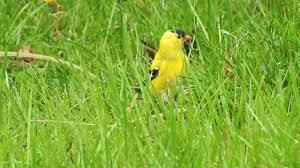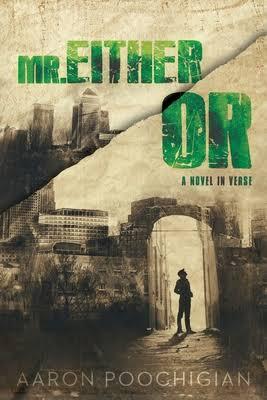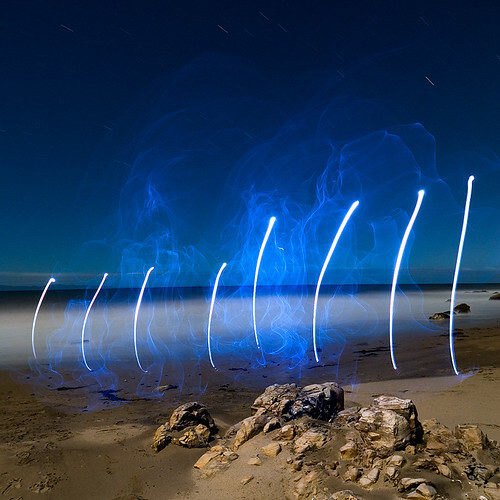Robin Helweg-Larsen's Blog, page 9
May 31, 2025
Epigram: Brooke Clark, ‘Still Waiting’

You say your memoirs offer pointed re-evaluations
of countless authors’ puffed-up reputations
so you’ve arranged to have them published once you’re safely dead.
Nestor, it’s time your memoirs were read.
*****
Brooke Clark writes: “The original for this is by Martial: Epigrams IV.33; it’s a good example of the alternating 7-stress, 5-stress lines I finally settled on as the best way to capture the feeling of Martial’s elegiac couplets in English. Martial has a number of these “hurry up and die already” poems; if you read through large chunks of his epigrams at a go you’ll find a lot of themes recur over and over with slight variations. The addressee in the original is a poet, but somehow I found the idea of a writer who has left a “poison pen” memoir revealing what he really thinks of all his contemporaries more interesting. Nestor is one of the recurring “characters” in Urbanities, an idea I picked up from Martial’s treatment of Zoilus and expanded until I had a small cast whose stories developed over the course of the book.”
‘Still Waiting’ was originally published in Literary Imagination.
Brooke Clark is the author of the poetry collection Urbanities and has published work in Arion, Literary Imagination, THINK, The Walrus, LA Review of Books, and other places. He is also the editor of the online epigrams journal The Asses of Parnassus and the book reviews editor at Able Muse.
Twitter: @thatbrookeclark
Bluesky: @brookeclark.bsky.social
Photo: “1701 Martial Epigrams Dekesel M139” by Ahala is licensed under CC BY-NC 2.0.
May 30, 2025
Marcus Bales, ‘A Rainy Day in Cleveland’

A rainy day in Cleveland. I almost said
“The skies are gray.” Of course the skies are gray,
It’s raining, so — what could they be instead?
I meant to mow the rest of the lawn today,
But it’s a day to watch the garden grow.
The finches, flashing in the too-long grass,
Are pecking dandelion seeds, and glow
Their special yellow through rain-dotted glass.
The internet is off. I sit and watch
The irises and roses in the rain,
And do not read about the ugly botch
The greedy criminals in charge sustain
So they can strut around, so white, so male,
And cheat and lie to keep themselves from jail.
*****
Marcus Bales writes: “The rap against democracy has until now always been that the public, once it realized they could simply vote themselves money and benefits, would bankrupt the state voting themselves benefits and money. For 250 years the US public managed not to do that, though the reactionaries always accused them of it. It turns out the real danger is that if you have enough money you can just buy the government and operate it as a racket to benefit yourself and your cronies, even when there are laws in place that you have to break in order to do so. The problem with democracy, it turns out, is not that people are irresponsible but that the wealthy are liars and thieves.”
Not much is known about Marcus Bales except that he lives and works in Cleveland, Ohio, and that his work has not been published in Poetry or The New Yorker. However his ’51 Poems’ is available from Amazon. He has been published in several of the Potcake Chapbooks – Form in Formless Times.
Photo: Danny redd Photography https://www.facebook.com/watch/?v=1605166609548538
May 28, 2025
Using form: Villanelle: Rachel Hadas, ‘However Cool’

However cool X may have thought he was
made very little difference in the end.
We are transformed as we approach the close.
Everyone is subject to these laws.
Ozymandias collapsed in sand,
however cool he may have thought he was.
We live in structures—marriage, job, or house—
steered steadily toward an unknown land,
slyly transfigured as we near the close,
additions and subtractions dealt by whose
enormous unseen hand?
However cool Y may have thought Z was,
her freshness faded like a poet’s rose,
malady no medicine can mend
disguising her before she reached the close.
Think of it as time; a veiled command;
a principle: I do not give. I lend.
However cool we might have thought A was,
we all are changed as we approach the close.
Rachel Hadas writes: “The villanelle ‘However Cool’ was occasioned by a conversation with a friend; she and I were talking about a mutual acquaintance who was ill, and my friend uttered a perfect iambic pentameter line which became the first line of the poem, as well as, with variation, one of the repeated lines. It was fun to keep switching initials – the “however cool…” downward arc applies in different ways to so many people.
“A.E. Stallings has commented that villanelles are more fun to write than to read, and she may have a point. At this point in life, I certainly find them easier to write than sonnets. But I hope there’s a bit of rueful fun to be had in ‘However Cool’.”
Rachel Hadas’s recent books include Love and Dread, Pandemic Almanac, and Ghost Guest. Her translations include Euripides’s Iphigenia plays and a portion of Nonnus’s Tales of Dionysus. Professor Emerita at Rutgers-Newark, where she taught for many years, she now teaches at 92Y in New York City and serves as poetry editor of Classical Outlook. Her honors include a Guggenheim fellowship and an award from the American Academy-Institute of Arts and Letters.
Photo: “cool for kids – summer holidays” by oddsock is licensed under CC BY 2.0.
May 26, 2025
Short poem: RHL, ‘Vibration’

It’s quite a ride.
We took off in a cloud of dust and noise
and, while it might look steady, silent, from afar
above the clouds I’m feeling more and more
a rattle in the cabin and my joints
as though the bolts are shaking loose;
you trust the plane will land safe, smooth, three points . . .
but one way or another, all flights end.
*****
‘Vibration’ was recently published in Blue Unicorn.
Photo: “Ready for the ride, but Someone is a bit nervous…” by Just Us 3 is licensed under CC BY-NC 2.0.
May 24, 2025
Using form: iambic trimeter: Janet Kenny, ‘Stars’

Look at the stars, she said.
Just look how cold and bright!
And most of them are dead
though brightening the night.
Time lives and dies like stars.
The past is death of now.
Impermanence that scars
our fleeting human hour.
The world inside a mind
that dies when we die too
leaves others left behind
resigned without a clue.
Forget me nots deceive
and daisy chains depend
on children who believe
our world will never end.
*****
Janet Kenny writes: “The poet is very old and has been confronted inescapably with the mortality of all things.”
Janet Kenny left New Zealand to pursue a career as an operatic and concert singer in London, then settled in Sydney, Australia, where she worked in the anti-nuclear movement and jointly compiled, wrote and edited a book about the nuclear industry, Beyond Chernobyl, published by Envirobook in 1993. Janet lived for many years in Sydney with her husband and visiting currawongs. She now lives in Hervey Bay, Queensland, with visiting butcher birds, spangled drongos, ospreys, pelicans, assorted honeyeaters and flying foxes.
Her poems have been published in printed and online journals, including Avatar, The Chimaera, Folly, 14 by 14, Iambs & Trochees, The Literary Review, Mi Poesias, The Guardian, The Spectator, The New Formalist, The Barefoot Muse, The Raintown Review, The Shit Creek Review, Snakeskin, Lavender Review, Soundz ine, Victorian Violet Press, The Susquehanna Quarterly and Umbrella. Her work is in the collections The Book of Hope and Filled With Breath: 30 sonnets by 30 poets and in the Outer Space anthology, Cambridge University Press. She shared an anthology of bird poems, Passing Through, with Jerry H. Jenkins. She has received three Pushcart nominations.
A selection of her poems, and links to her poetry collections Whistling in the Dark (2016, Kelsay Books) and This Way to the Exit (White Violet Press), are on her website https://janetkenny.netpublish.net/index.htm
Photo: “Sizzling Remains of a Dead Star” by Euclid vanderKroew is licensed under CC BY-NC-SA 2.0.
May 23, 2025
Sonnet: Gail White, ‘Catherine Howard’

(Fourth Wife of King Henry VIII)
The teenage bride the Norfolks gave the king
lacked only brains and her virginity.
Henry was in no mood for questioning
his rose without a thorn. If only she
had borne a son, he never would have doubted
her purity. But as the months went by
her youthful dalliance with boys was outed,
then the king’s young attendant caught her eye
and there were secret meetings, hide and seek.
It all came out. She wrote to beg for grace,
pleading that men were bold and girls were weak,
and Henry wept, but nothing could efface
her crime. The headsman ended all her pains.
Sometimes it pays a woman to have brains.
*****
Gail Whie writes: “After reading Gareth Russell’s excellent biography of Catherine, Young & Damned & Fair, I decided to take a leaf out of Daniel Galef’s Imaginary Sonnets and give her a sonnet of her own. I figured that any woman who would commit adultery while married to Henry the Eighth must be either desperate or spectacularly stupid. And on the path to inevitable execution, I think she really broke the king’s heart.”
Gail White lives in the Louisiana bayou country with her husband and cats. Her latest chapbook, Paper Cuts, is available on Amazon, along with her books Asperity Street and Catechism. She appears in a number of anthologies, including two Pocket Poetry chapbooks, five Potcake Chapbooks, and Nasty Women Poets. She enjoys being a contributing editor to Light Poetry Magazine. Her dream is to live in Oxfordshire, but failing that, almost any place in Western Europe would do.
“Catherine Howard” by Stifts- och landsbiblioteket i Skara is licensed under CC BY 2.0.
May 21, 2025
RHL, ‘Cultural Context’

Between the Prime primeval Evil
with its shaky tale of taily snake and fruit,
and the (only medi-evil)
Renaissance and lute,
come Greeks and Romans, Arabs, and
(skirting the border
of anything that looks like law and order)
Vikings searching for new land.
From all of these
I draw my science and mythologies.
It’s all intriguing, never scary –
at least, to me;
ymmv.
*****
For those not familiar with this particular piece of slang, “ymmv” is an abbreviation for “your mileage may vary”, itself an abbreviation for the idea that different people have difference experiences and perceptions. What I like about its use here is that it provides the missing rhyme for either of the two previous lines, depending on how you say it.
‘Cultural Context’ was published recently in Blue Unicorn.
Photo: “Straight out of the Holy Land!” by One lucky guy is licensed under CC BY-NC-SA 2.0.
May 19, 2025
Odd poem: Marilyn Monroe, ‘Rhyme’

From time to time
I make it rhyme
but don’t hold that kind
of thing
against
me—
Oh well, what the hell,
so it won’t sell.
What I want to tell—
is what’s on my mind:
‘taint Dishes,
‘taint Wishes,
it’s thoughts
flinging by
before I die—
and to think
in ink.
*****
Marilyn Monroe read voraciously and wrote somewhat epigrammatically. She was friends with Dorothy Parker and Carson McCullers, and many other literary figures through her work as well as her marriage to Arthur Miller. Apart from movie scripts, she read widely: Thurber and Bemelmans, Dostoevsky and Camus, Yeats and Frost, Lewis Carroll and Harold Robbins and Rudolf Steiner and Sigmund Freud… In 1999 hundreds of her books were auctioned by Christie’s in New York. The whole list, together with more of her poems and epigrams and photos and mentions of literary friends can be found here in The HyperTexts.
Photo: Marilyn Monroe reading in the woods, from The HyperTexts.
May 17, 2025
Aaron Poochigian, intro to ‘Mr. Either/Or’

Washington Square, playground of NYU,
and you are in the grass, your shoes and socks
like sloughed snakeskin around you. Speed-chess players
at concrete tables cuss and slap their clocks
as cops with nothing nine-one-one to do
roust dormant derelicts from greenhouse layers
of coats and trash. Nearby, a Gingko tree,
and under it a blonde in horn-rimmed glasses
eating up The Stranger by Camus.
You almost feel at home in this milieu;
for five years now you have been skipping classes,
tipping beers and averaging a ‘C’
to mask your hazardous identity,
the wicked one, known only to a few
code-numbered codgers in the F.B.I.
Somewhere at Quantico a dossier
redacts your selfless service as a fly
collecting wide-eyed snapshots for Defense,
a freak inferno burning evidence,
a ricin prick, a ‘beddy-bye’ bouquet,
and all too often the unlucky guy
sent in the long last seconds of suspense
to snip the ticker and defuse a war.
Who knows? Someday it might be nice to play
one person, but for now you live as two:
student and agent, Mr. Either/Or.
*****
Aaron Poochigian writes: “I think of the ‘Mr. Either/Or’ books as entertainments, airport novels to be devoured like genre fiction. I mixed together Pynchon’s ‘The Crying of Lot 49’, Byron’s ‘Don Juan’ and Lee Child’s Jack Reacher thrillers, and the adventures of Mr. Either/Or are what came out. I only hope that they are fun.
“The section published here introduces you to the main character, Zach Berzinski, an FBI agent undercover as an NYU student. This chapter is especially dear to my heart because it describes Washington Square Park with its cast of buskers and undergrads. It’s one of my favorite hang-outs. In 1917, Marcel Duchamp and other Bohemian artists declared the park ‘The free and independent Republic of Bohemia’, a sovereign polity outside of the USA.”
Aaron Poochigian earned a PhD in Classics from the University of Minnesota and an MFA in Poetry from Columbia University. His latest poetry collection, American Divine, the winner of the Richard Wilbur Award, came out in 2021. He has published numerous translations with Penguin Classics and W.W. Norton. His work has appeared in such publications as Best American Poetry, The Paris Review and Poetry.
aaronpoochigian.com
americandivine.net
May 16, 2025
Sonnet: RHL, ‘An Observation’

If particles only exist as waves,
precipitating out only when measured, seen,
till then just ghostly, nebulous, roughed-in…
If that’s the way the universe behaves,
then who’s to say the moons of Jupiter
existed before Galileo scoped
them out? Our simple world had coped,
pre-Hubbell, without needing to infer
a billion galaxies. Again, if things
newly observed are different than before,
then things that once were real are real no more,
especially nebulous, wave-form, with wings,
hence dragons, fairies, elves all now seem odd…
and angels, demons, giants, ghosts… and God.
*****
This sonnet was recently published in Bewildering Stories (thanks, Don Webb), and seems to have touched a chord with that issue’s theme of esse est percipi; so it leads off that week’s questions in the magazine:
In Robin Helweg-Larsen’s An Observation:George Berkeley’s philosophy of Idealism is based upon the principle: “To be is to be perceived.” How does the theory of Quantum Physics support the principle of perception? Or does it?The poem concludes by listing a number of supernatural beings whose reality is implicitly denied as long as they have not been perceived. How does “God” differ — by definition — from the others in the list?By whom or what must something be perceived in order to exist? And how does a perception take place?Photo: “Nebulous in Blue” by Toby Keller / Burnblue is licensed under CC BY-NC-SA 2.0.



